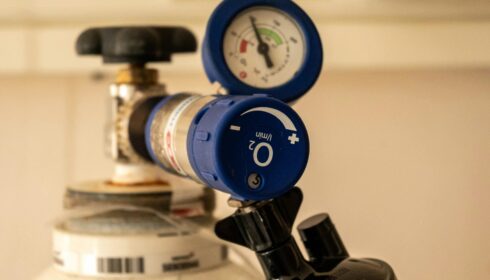DEXA-ARDS

Dexamethasone treatment for the acute respiratory distress
syndrome: a multicentre, randomised controlled trial
Villar. Lancet Respiratory Medicine. 2020;8(3)267-276
Clinical Question
- In patients with moderate-severe ARDS, does dexamethasone in addition to routine care, compared with routine care alone increase ventilator free days up to day 28?
Background
- ARDS is an acute diffuse, inflammatory lung injury, in response to acute pulmonary and systemic insults
- There are no proven pharmacological therapies for ARDS
- There is interest in the potential use of steroids for ARDS due to their anti-inflammatory and anti-fibrotic properties
- Different regimens of corticosteroids have been tested in ARDS with inconclusive results
- A meta-analysis of 9 trials (n=816) reported that steroids for ARDS reduced time to extubation and mortality
- A Cochrane review of 17 RCTs (n=2264) reported that steroids for severe pneumonia reduced mortality
- Trials published following the publication of this trial have demonstrated a reduced mortality in patients with COVID-19 who are treated with steroids
Design
- Randomised controlled trial
- Balanced treatment assignments, stratified by centres in blocks of ten
- Use of opaque sealed envelopes to ensure allocation concealment
- Computer generated random number table
- Treating clinicians were not blinded to study group
- Outcome assessors were masked to study group
- Intention to treat analysis
- Sample size of 314 patients gave 80% power with 5% false positive rate to detect a reduction from 9 to 7 ventilator free days, and 15% reduction in 60 day mortality from baseline of 48%
- Trial stopped early following recommendation of data and safety monitoring board due to low enrolment numbers
- Registered on clinicaltrials.gov
Setting
- 17 intensive care units in teaching hospitals in Spain
- Data collected March 2013 – December 2018
Population
- Inclusion:
- Age ≥18
- Intubated and mechanically ventilated
- Acute onset of ARDS as defined by
- American-European Consensus Conference criteria for ARDS or by the Berlin Criteria as moderate-severe ARDS
- within 1 week of initiating clinical condition (e.g. pneumonia, aspiration, inhalation injury, sepsis, trauma, pancreatitis)
- new/worsening respiratory symptoms
- bilateral pulmonary infiltrates on chest xray or CT
- no clinical signs of left heart failure or absence of left atrial hypertension; pulmonary capillary wedge pressure <18mmHg
- PaO2/Fio2 ratio <200 mm Hg on PEEP of 5cm H20 or more
- American-European Consensus Conference criteria for ARDS or by the Berlin Criteria as moderate-severe ARDS
- PaO2/FiO2 ratio ≤200 mmHg (≤26.7 kPA) at 24 hours after ARDS onset (when first met moderate-severe ARDS criteria) using standardised ventilatory setting
- with PEEP ≥10 and FiO2 ≥0.5
- Exclusion: pregnancy, active lactation, brain death, terminal stage disease, DNAR, treatment with corticosteroids or immunosuppressive drugs, severe COPD or congestive heart failure
- 277 patients randomised
- Comparing baseline characteristics of dexamethasone vs. control group
- Age: 56 vs 58
- Female: 31% vs 31%
- SOFA score: 8.7 vs 8.6
- Time from intubation to randomisation: 2.1 vs 2.1 days
- Causes of ARDS
- Pneumonia: 54% vs 52%
- Sepsis: 24% vs 25%
- Aspiration: 13% vs 11%
- Trauma 8% vs 7%
- Degree of lung severity
- Moderate (P/F ratio 100-200): 85% vs 88%
- Severe (P/F ratio <100):15% vs 12%
- Mean P/F ratio: 142.4 vs 143.5
- Tidal volume (ml/kg predicted weight): 6.9 vs 6.9
- FiO2: 0.64 vs 0.64
- PEEP: 12.6 vs 12.5
- Comparing treatment received by intervention vs control group
- Received continuous infusion of neuromuscular blocking agents or recruitment manoeuvres during 1st 10 days of ARDS
- 58% vs 59%
- Prone ventilation
- 20% vs 30%, difference 10.3% (95% CI 4-20), p=0.0492
- ECMO
- 3.6% vs 6.5
- Received continuous infusion of neuromuscular blocking agents or recruitment manoeuvres during 1st 10 days of ARDS
Intervention
- Dexamethasone + conventional treatment
- 1st dose received immediately after being randomised and no later than 30 hours after ARDS onset
- 20mg once daily IV from day 1 to day 5
- 10mg once daily IV from day 6 to day 10
- Treatment continued until day 10 or until extubated if before day 10
Control
- Conventional treatment
Management common to both groups
- Supportive management was not strictly controlled but staff were asked to follow standard guidelines
Outcome
- Primary outcome: Number of ventilator free days – significantly greater in the dexamethasone group
- 12.3 (SD 9.9) vs 7.5 (SD 9.0)
- Difference 4.8 days (95% CI 2.57-7.03), p<0.0001
- Secondary outcomes:
- Significantly reduced in dexamethasone group
- All cause mortality at day 60
- 21% vs 36%
- Difference -15.3% (95% CI -25.9 to -4.9), p=0.0047
- NNT 7
- Fragility index 6
- ICU mortality
- 19% vs 31%
- Difference -12.5% (95% CI -22.4 to -2.3), p=0.0166
- Duration of mechanical ventilation in ICU survivors
- 14.2 vs 19.5 days
- Difference -5.9 (95% CI -9.1 to -2.7), p=0.0004
- SOFA score from day 3
- 6.6 vs 8.0
- All cause mortality at day 60
- Significantly greater in dexamethasone group
- P/F ratio at day 6
- 219 vs 192 mmHg
- P/F ratio at day 6
- No significant difference in
- Adverse events & complications
- Hyperglycaemia in ICU: 76% vs 70%
- New infections in ICU: 24% vs 25%
- Barotrauma: 10% vs 7%
- Extubation failure
- 8.6% vs 5.1%
- Adverse events & complications
- Significantly reduced in dexamethasone group
- Post-hoc analysis
- Number of ICU deaths from multiple system organ failures – significantly reduced in dexamethasone group
- 9% vs 17%, p=0.048
- Number of ICU deaths from multiple system organ failures – significantly reduced in dexamethasone group
Authors’ Conclusions
- Early administration of dexamethasone could reduce duration of mechanical ventilation and overall mortality in patients with established moderate-to-severe ARDS
Strengths
- Randomised controlled trial
- Multicentre
- Blinding of outcome assessors
- Intention-to-treat analysis
- Use of 2 step inclusion criteria with patients only recruited after 24 hours of standard ventilation. This meant that the intervention was limited to patients who would have been likely to benefit from this treatment
Weaknesses
- Low level of proning, and no mandated protocol for its use
- Set in single country may limit external validity
- Each site only recruited average 3 patients per year, potential for selection bias
- Trial stoped early due to low recruitment
- Treating clinicians non-blinded
The Bottom Line
- In patients with early but established moderate-severe ARDS the use of dexamethasone in addition to standard care, significantly increased the number of ventilator free days and significantly reduced mortality
- The majority of patients were not proned. It is therefore unclear if the benefit remains in patients who are treated with proning
External Links
- [article] Dexamethasone treatment for the acute respiratory distress syndrome: a multicentre, randomised controlled trial
- [further reading] PulmCrit – Steroid for ARDS? The DEXA-ARDS trial
- [further reading] Prolonged low-dose methylprednisolone treatment is highly effective in reducing duration of mechanical ventilation and mortality in patients with ARDS
- [further listening] Critical Care Reviews Meeting – DEXA ARDS presentation – starts at 6:00
Metadata
Summary author: @davidslessor
Summary date: 9th April 2021
Peer-review editor: Adrian Wong



